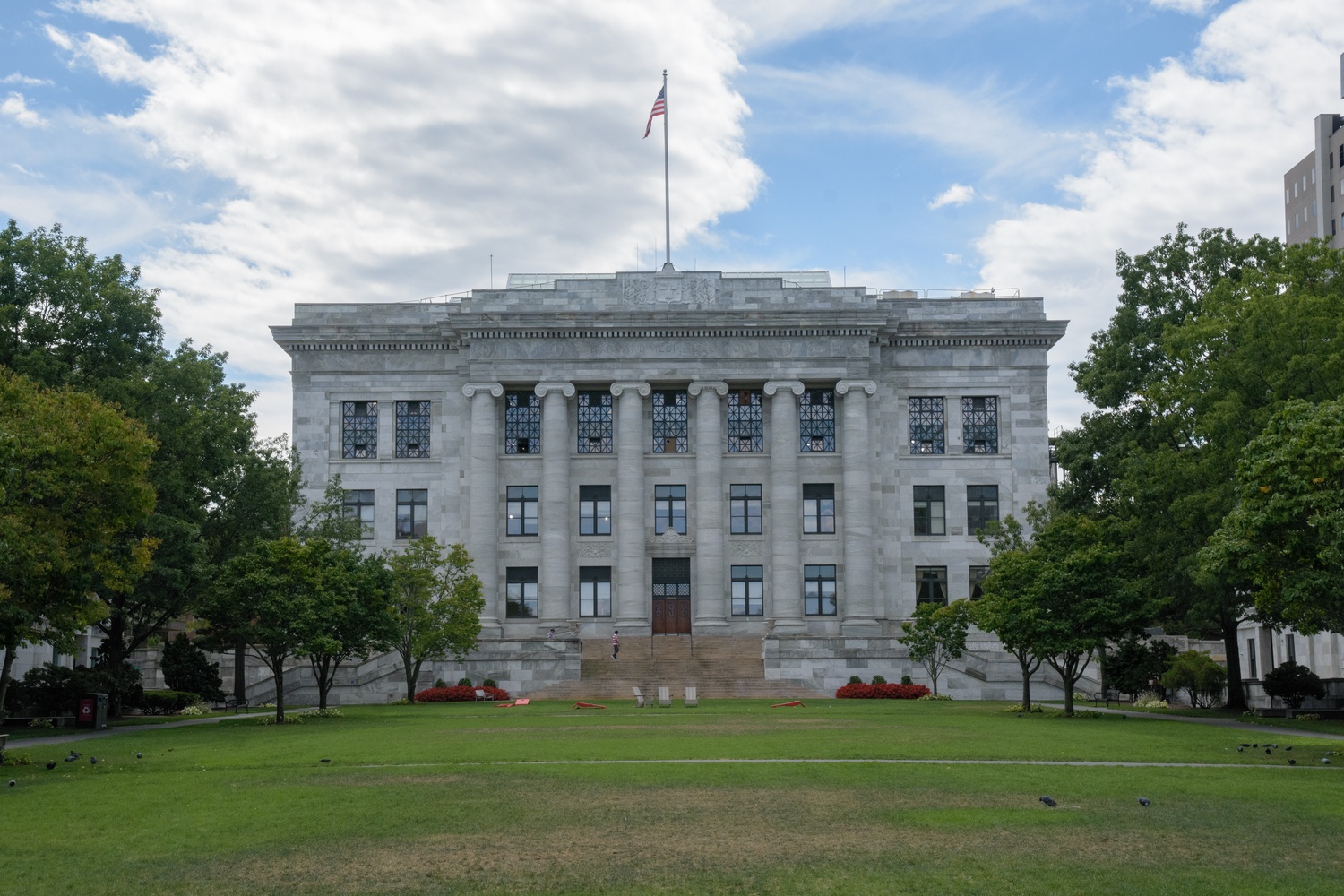
News
News Flash: Memory Shop and Anime Zakka to Open in Harvard Square

News
Harvard Researchers Develop AI-Driven Framework To Study Social Interactions, A Step Forward for Autism Research

News
Harvard Innovation Labs Announces 25 President’s Innovation Challenge Finalists

News
Graduate Student Council To Vote on Meeting Attendance Policy

News
Pop Hits and Politics: At Yardfest, Students Dance to Bedingfield and a Student Band Condemns Trump
Harvard, 10x Genomics Settle Patent Dispute With Vizgen

Updated February 22, 2025, at 4:23 p.m.
Biotechnology company 10x Genomics and Harvard University reached a Feb. 6 settlement in a patent lawsuit that they jointly filed against Vizgen Inc. in 2022, alleging that Vizgen unlawfully used gene sequencing technology developed and patented by Harvard researchers.
The case was dismissed with prejudice — meaning it cannot be brought back to court. The settlement terms were not disclosed in court filings.
The judge overseeing the case, Matthew F. Kennelly, issued a Jan. 3 summary judgment dismissing antitrust counterclaims that Vizgen lodged in response to Harvard and 10x’s suit, as well as all of Vizgen’s claims against 10x. Vizgen’s additional claims against Harvard were resolved by the Feb. 6 settlement.
Before the resolution, Harvard and 10x were seeking more than $9 million in damages, and Vizgen asked for up to hundreds of millions of dollars over its antitrust claims.
The parties’ dispute centered on research led by Harvard geneticist George M. Church, whose team developed technologies to help scientists visualize the molecules that store genetic information without removing them from cells and tissues.
In 2009, Church received a $20 million genomics research grant from the National Institutes of Health. Church wrote in his application that his team would “pursue open and non-exclusive licensing agreements” that allow inventions developed with the grant funding to be “made widely available to researchers and commercial entities.”
Church used some of the patents from his research to help launch a Massachusetts-based startup — ReadCoor, Inc. — in 2016. The same year, Harvard granted ReadCoor an exclusive license to use fluorescent in situ imaging technology. 10x — which acquired ReadCoor in 2020 — used the techniques to develop the Xenium In Situ Platform, which allows researchers to measure and map gene activity in tissue samples.
In 2020, during 10x’s acquisition process, Harvard broadened the terms of the license, granting ReadCoor exclusive rights to the sequencing, analysis, and nucleic acid amplification technologies developed by Church’s team.
Vizgen fired back, denying all allegations of patent infringement and arguing that Harvard was violating the terms of the original NIH grant. Vizgen’s complaint alleged Harvard and 10x’s decision to sue was evidence that they were violating antitrust laws by trying to quash competition from Vizgen.
Vizgen, 10x, and Harvard moved for summary judgement in November, asking Kennelly to decide some claims in the case without allowing them to proceed to a trial. But Kennelly partially denied Harvard and 10x’s requests and shot down Vizgen’s in full, and a jury trial began on Feb. 3.
Three days later, Harvard, 10x, and Vizgen agreed to close the case.
In a statement, Harvard spokesperson Jason A. Newton wrote that “Harvard is pleased to have reached an amicable resolution to a patent dispute involving 10X and Vizgen, allowing both companies to continue enabling impactful research.”
Vizgen spokesperson Brittany Auclair wrote in a statement that the company “is very pleased with the resolution agreed upon by the parties.”
“Leaving litigation behind allows us to focus on innovation and science — bringing competition back to the labs and out of the courtrooms,” Auclair added.
Eric Whitaker, 10x’s chief legal officer, wrote in a statement that 10x was “very pleased to have reached a resolution of this litigation that recognizes the foundational importance of Dr. Church’s inventions in the field of in situ genomics.”
—Staff writer Kaitlyn Y. Choi can be reached at kaitlyn.choi@thecrimson.com.
—Staff writer Sohum M. Sukhatankar can be reached at sohum.sukhatankar@thecrimson.com. Follow him on X @ssukhatankar06.
Want to keep up with breaking news? Subscribe to our email newsletter.
Most Read
- Experts Say Harvard Has a Strong Case in Legal Battle Against Trump
- College Dean Rakesh Khurana Declines To Say How Harvard Will Respond to Homeland Security Demands
- Trump’s Harvard Simply Isn’t Real
- 3 Harvard Professors Win 2025 Breakthrough Prizes
- IOP Fellows and Study Groups Leaders Push for Changes After Exclusive Biden Invite List
From Our Advertisers

Over 300+ courses at prestigious colleges and universities in the US and UK are at your disposal.

Where you should have gotten your protein since 1998.

Serve as a proctor for Harvard Summer School (HSS) students, either in the Secondary School Program (SSP), General Program (GP), or Pre-College Program.

With an increasingly competitive Law School admissions process, it's important to understand what makes an applicant stand out.

Welcome to your one-stop gifting destination for men and women—it's like your neighborhood holiday shop, but way cooler.

HUSL seeks to create and empower a community of students who are seeking pathways into the Sports Business Industry.
